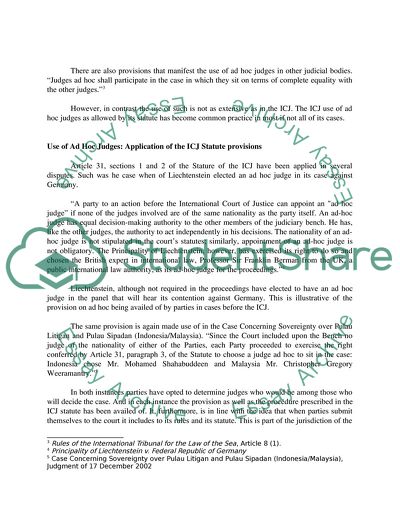Cite this document
(“Party-selected judges and arbitrators in international legal Research Paper - 2”, n.d.)
Party-selected judges and arbitrators in international legal Research Paper - 2. Retrieved from https://studentshare.org/miscellaneous/1574685-party-selected-judges-and-arbitrators-in-international-legal-proceedings-their-role-independence-desirability-and-compatibility-with-the-general-principles-of-law-governing-procedure-before-international-tribunals
Party-selected judges and arbitrators in international legal Research Paper - 2. Retrieved from https://studentshare.org/miscellaneous/1574685-party-selected-judges-and-arbitrators-in-international-legal-proceedings-their-role-independence-desirability-and-compatibility-with-the-general-principles-of-law-governing-procedure-before-international-tribunals
(Party-Selected Judges and Arbitrators in International Legal Research Paper - 2)
Party-Selected Judges and Arbitrators in International Legal Research Paper - 2. https://studentshare.org/miscellaneous/1574685-party-selected-judges-and-arbitrators-in-international-legal-proceedings-their-role-independence-desirability-and-compatibility-with-the-general-principles-of-law-governing-procedure-before-international-tribunals.
Party-Selected Judges and Arbitrators in International Legal Research Paper - 2. https://studentshare.org/miscellaneous/1574685-party-selected-judges-and-arbitrators-in-international-legal-proceedings-their-role-independence-desirability-and-compatibility-with-the-general-principles-of-law-governing-procedure-before-international-tribunals.
“Party-Selected Judges and Arbitrators in International Legal Research Paper - 2”, n.d. https://studentshare.org/miscellaneous/1574685-party-selected-judges-and-arbitrators-in-international-legal-proceedings-their-role-independence-desirability-and-compatibility-with-the-general-principles-of-law-governing-procedure-before-international-tribunals.


